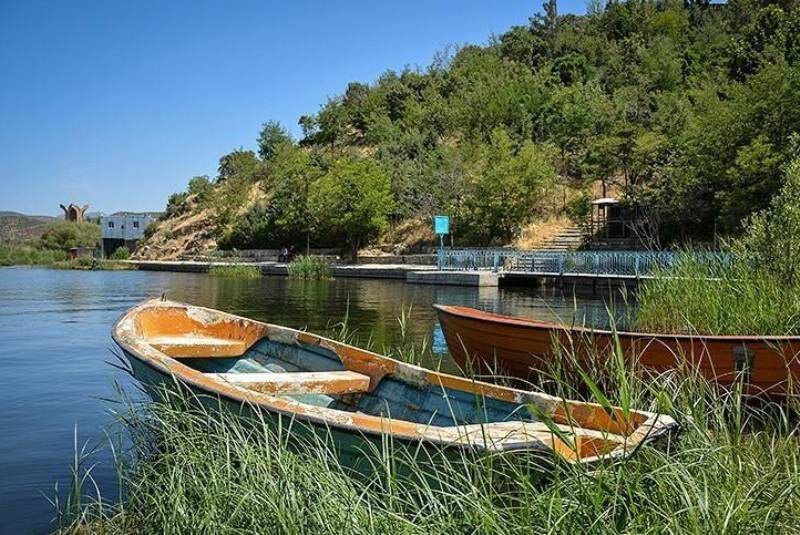A look at Iran's achievements in COP15

TEHRAN – Attending the 15th meeting of the Conference of the Parties (COP15) to the Ramsar Convention on Wetlands, the Iranian delegation achieved notable accomplishments, reinforcing the country’s international position in the environmental sector, particularly in wetland conservation.
COP15 to the Ramsar Convention on Wetlands was held from July 23 to 31 in Victoria Falls City, Zimbabwe. It was held under the theme “Protecting Wetlands for our Common Future.” COP15 adopted a new strategic plan for 2025-2034, the Convention’s fifth action plan.
Being appointed to represent the South and West Asia region on the Ramsar Convention Standing Committee was the most significant achievement of the country.
It will contribute to strengthening the country’s regional role in environmental decision-making.
The committee includes representatives from 18 countries selected from different geographical regions of the world, the host country of the upcoming Convention meeting, as well as partner international organizations such as the International Union for Conservation of Nature (IUCN) and Wetlands International.
Iran will play a key role in intersessional decision-making, monitoring the performance of the Ramsar Secretariat, managing financial resources, and developing draft resolutions for future meetings.
Iran was elected as the Vice-Chair for the COP15 by the Standing Committee of the Convention on Wetlands. More importantly, the country will serve as the Co-Chair of the Strategic Plan Working Group for 2025 2034, playing a key role in shaping the future of the Ramsar Convention.
The Strategic Plan Working Group is responsible for drafting the new Strategic Plan, which will outline the key goals, targets, and actions for the Ramsar Convention over the next decade.
Recognizing successful activities and measures of the Ramsar Regional Center for West and Central Asia, based in Iran, the Ramsar Convention Secretariat renewed the center’s mandate for three more years, reaffirming its support for the center.
On the first day of COP15 of the Ramsar Convention on Wetlands, the three Iranian cities, including Babol in northern Mazandaran province, Kiashahr in northern Gilan province, and Gandoman in southwestern Chaharmahal-Bakhtiari province, received wetland city accreditation certificates.
The country has also become a member of the Independent Advisory Committee (IAC). The committee plays a key role in evaluating and recommending cities for accreditation as Wetland Cities.
Moreover, Iman Ebrahimi, the founder and CEO of AvayeBoom Bird Conservation Association, the first bird conservation NGO in central Iran, received the Ramsar Wetland Conservation Award for Young Wetland Champions.
The achievement was announced at the 64th meeting of the Standing Committee of the Ramsar Convention, which was held from January 20 to 24, at Secretariat headquarters in Gland, Switzerland. The
Award for Young Wetland Champions was established to acknowledge and celebrate exemplary efforts of an individual or group of young people aged between 18 and 30 years for their contributions to the conservation, wise use, and restoration of wetlands.
On the sidelines of the event, the Iranian delegation, led by Ahmad-Reza Lahijanzadeh, deputy for Marine and Wetlands at the Department of Environment, held a meeting with Musonda Mumba, the Secretary General of the Convention on Wetlands.
During the meeting, the officials discussed the significance of preserving wetlands, particularly Hamoun, a transboundary wetland on the Iran-Afghan border, and Hour al-Azim wetland, an important wetland on the border of Iran and Iraq, which has been affected by recent fires and the 12-day imposed war by Israel on Iran.
The official also held meetings with delegations from Zimbabwe, Oman, and China.
Evelyn Ndlovu, Minister of Environment, Climate, and Wildlife of Zimbabwe, in a meeting with Lahijanzadeh, called for the promotion of joint efforts between the two countries.
Highlighting Zimbabwe’s extensive experiences in wildlife conservation, Ndlovu, who is also COP15 President, proposed to develop collaborative efforts on water management and the preservation of the Asiatic cheetah through sharing scientific and practical expertise.
For his part, Lahijanzadeh welcomed the proposal on behalf of the DOE, while elaborating on the country’s environmental measures.
The two officials agreed to sign a memorandum of understanding (MOU) and put it on the top agenda of the two organizations, subsequently.
In separate meetings with Omani and Chinese delegations, the officials discussed oil pollution, ship ballast water discharge, mangrove forest restoration, wetland monitoring, biodiversity conservation, and green investment. They also agreed to sign a memorandum of understanding to boost cooperation in dealing with the mentioned issues.
The Ramsar Convention on Wetlands was signed in the city of Ramsar, Iran, in 1971. This intergovernmental treaty provides the framework for international cooperation on wetland conservation. The convention officially came into force in 1975.
Since then, many countries have become Contracting Parties to the convention. Saudi Arabia is the 173rd one.
MT/MG
Leave a Comment